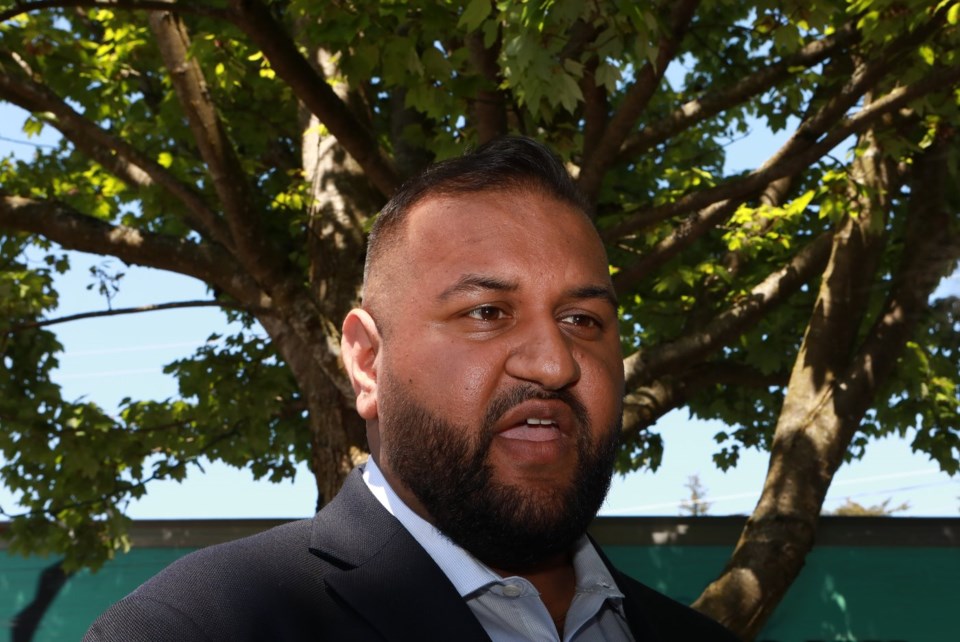Canadian softwood lumber exported to the United States could soon face additional tariffs and duties of up to 55 per cent, British Columbia's forests minister said.
The "Trump tariff and increased duties" are estimated to reach 50 to 55 per cent compared with the current 14 per cent duty on Canadian softwood lumber shipped to the United States, Ravi Parmar said Friday during a virtual news conference while standing outside California's capitol building in Sacramento.
Parmar travelled to the United States this week on a trade mission aimed at showing how the tariffs will hurt consumers on both sides of the border.
He met with the California Building Industry Association as well as politicians and said that any tariff will increase building costs, particularly after more than 16,000 homes and buildings were destroyed by recent wildfires.
Association CEO Dan Dunmoyer said in a joint statement with Parmar that they're working together to ensure beneficial trade policies are understood by policy-makers, and further levies will only increase building costs in the United States.
"I'm going to be engaging with the insurance industry as well and they have already started throwing out pretty significant figures that the cost of a rebuild could potentially go up 20 to 30 to potentially even 40 per cent because of these Trump tariffs, in addition to the duties as well,” Parmar told reporters.
The Forest Ministry said in a statement that Parmar’s calculation is based on the expectation for the current softwood lumber duty to double by end of the year.
It says if the threatened 25 per cent tariff is added on top of that, the combined total on softwood exports to the United States will be closer to the 50 to 55 per cent estimate.
U.S. President Donald Trump delayed announcing his plans on a 25 per cent tariff on Canadian goods earlier this month to March 4.
"It's important for me to reiterate that the president has made several comments recently where he said that he doesn't require the trees of Canada. That's false. He gets a lot of trees from Canada, a lot of softwood lumber," Parmar said.
The minister said he was in California to work on relationships and find ways to address the challenges posed by the threat of rising U.S. tariffs on Canadian softwood lumber.
Earlier this month, Dunmoyer said California is dependent on Canadian lumber and "there aren't really alternatives" to Canadian lumber used for homebuilding in the state because about 80 per cent of its land is owned by the federal or state governments and can't be logged.
Dunmoyer also said California lacks mills, environmental policies and supply chains that would allow a quick switch to local lumber production, and making those changes would likely take years.
"I'm hopeful that the conversations that I've been able to procure here in California lead to advocacy at the federal level here as well," Parmar said.
Canada's forestry sector has described the proposed tariffs as unnecessary and unwarranted, given that the United States currently meets only about 70 per cent of its homebuilding lumber needs domestically, while using Canadian lumber to fill the gap.
The U.S. raised duties on softwood lumber from Canada last August from 8.05 per cent to 14.54 per cent.
This report by The Canadian Press was first published Feb. 14, 2025.
Marcy Nicholson, The Canadian Press

